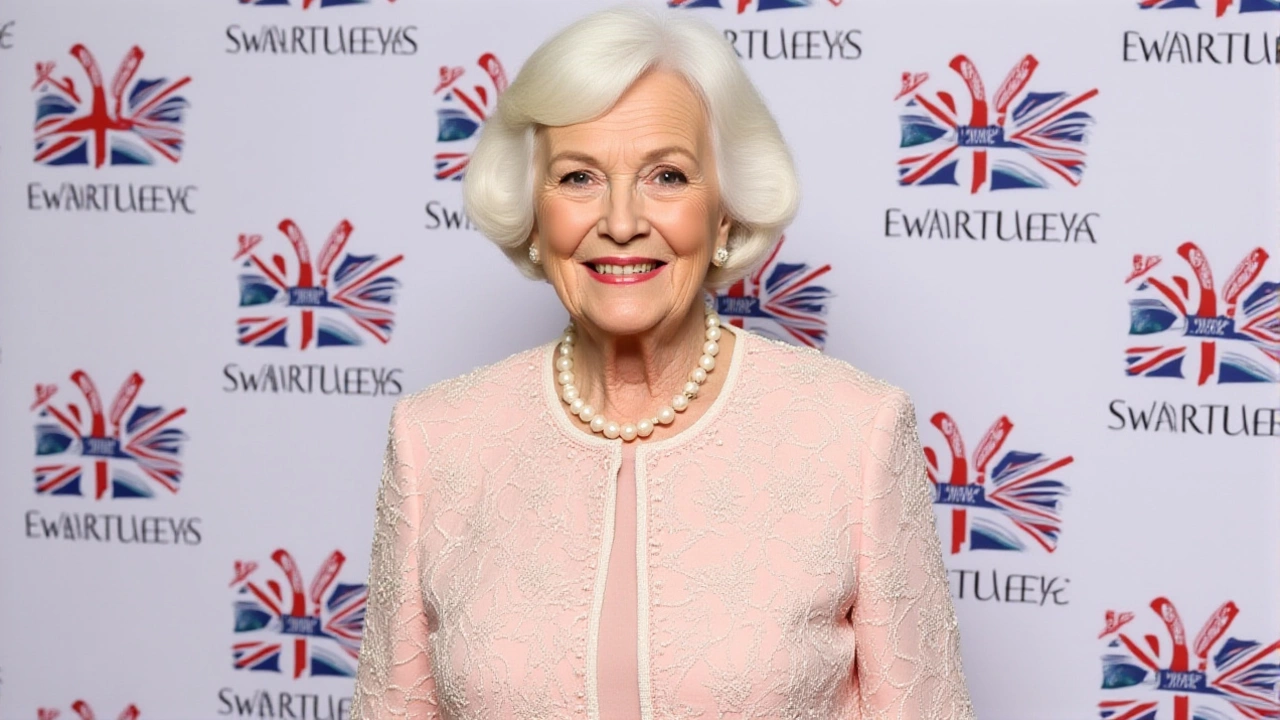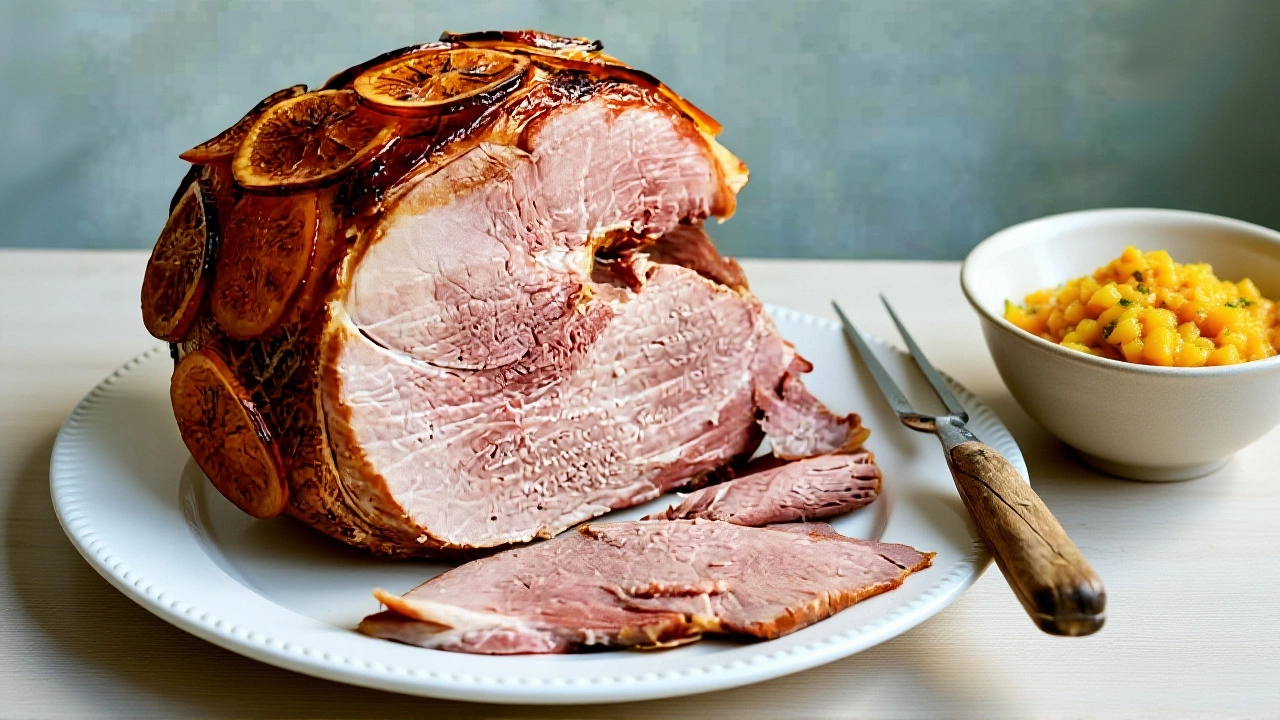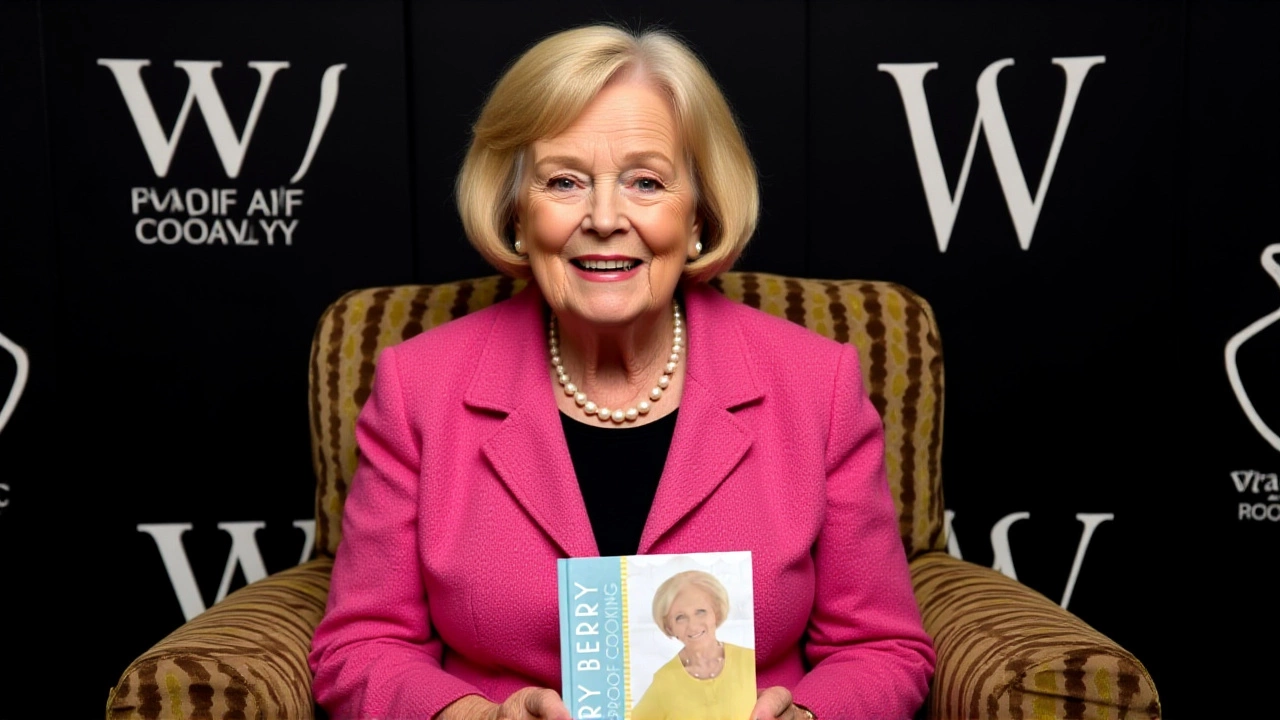At 90, Dame Mary Berry doesn’t need a detox or a superfood smoothie to stay vibrant. She just avoids processed junk, buys meat from her local butcher, and laughs off the latest diet craze. It’s not rocket science — and that’s exactly why it works. The British culinary icon, best known for her decades as a judge on The Great British Bake Off, shared her simple, no-nonsense eating philosophy in a candid interview on the parenting podcast Lessons from Our Mothers, hosted by sisters Cressida and Isabella. Reports from Women’s Health Magazine UK (October 26, 2023) and Woman & Home (November 1, 2023) confirmed her three core rules — and they’re the opposite of what you’d expect from a health guru.
Rule One: Absolutely No Processed Foods
"I avoid processed foods. Absolutely, definitely," Berry told the podcast. It’s a blunt statement, but one backed by science. The National Health Service (NHS), headquartered in London, defines processed foods broadly — anything altered from its natural state. But Berry’s target is clearer: ultra-processed items. These are the ones flagged by the NOVA food classification system, developed by researchers at the University of São Paulo. Think sugary cereals, packaged snacks, ready meals with unpronounceable ingredients. They’re linked to inflammation, weight gain, and even cognitive decline in older adults. Berry doesn’t need a study to tell her this. She’s seen food change over 70 years. "I remember when bread was bread," she once said in a 2018 interview. Now, she won’t touch it if it comes in a plastic bag with a shelf life longer than her grandchildren’s school terms.Rule Two: Go to Your Butcher — Not the Supermarket
"I go to my butchers," Berry insists. And not just for the meat. "You’ll get advice as well as good meat." That’s the hidden value. Butchers know their cuts. They can tell you which is leanest, which needs slow cooking, which is best for Sunday roast. The NHS echoes this advice: "Ask your butcher for a lean cut" and "limit processed meats like sausages and salami." Berry’s rule isn’t just about quality — it’s about connection. It’s a ritual. A conversation. A way to know where your food comes from. In an age of click-and-deliver groceries, she’s holding onto something older: trust.Rule Three: Ignore the Trends — Especially Kale
"I don’t go with the trends," she said. And she didn’t stop there. When asked about kale — the poster child of superfoods — she was blunt: "I don’t like kale, and that’s okay." Instead, she champions cabbage. "I love cabbage. I’ll promote that or watercress." And she’s right. Cabbage is packed with fiber, vitamin C, vitamin K, and antioxidants. It’s cheap, seasonal, and versatile. Unlike kale, which often costs twice as much and wilts in two days, cabbage lasts weeks in the fridge. Berry’s point? Eat what you like, what’s good for you, and what doesn’t make you feel like you’re on a diet. "Cakes are healthy too," she added with a smile. "You just eat a thin slice. There’s a lot of cheer in a cake."
Balance, Not Deprivation
What makes Berry’s approach so powerful isn’t rigidity — it’s balance. She doesn’t forbid herself cake. She just eats a thin slice. And the next day? "I’m pretty careful," she said. That’s not a diet. That’s wisdom. It’s the rhythm of life, not the rigidity of rules. She’s lived through postwar rationing, the rise of convenience food, the superfood boom, and now, the backlash against it all. Her philosophy isn’t new — it’s timeless. Eat real food. Cook it yourself. Enjoy it. Don’t let marketing tell you what’s good.A Life in Food — From Polio to the Spotlight
Born Mary Rosa Alleyne Berry in Bath, Somerset, on March 24, 1935, she contracted polio at 13 during the 1948 epidemic. Confined to bed for months, she turned to cookbooks. That’s where her passion began. By the 1960s, she was writing cookbooks. By the 2010s, she was a national treasure on The Great British Bake Off. Her longevity isn’t magic. It’s consistency. She’s never followed a fad. She’s never counted calories. She’s just cooked, eaten, and shared food with joy — for over 70 years.
What’s the Bigger Picture?
Berry’s rules reflect a quiet revolution in nutrition. Experts are finally catching up: the best diet for aging well isn’t the one with the most exotic ingredients. It’s the one you can stick to. It’s the one that doesn’t make you feel guilty. It’s the one that includes cake — just not every day. The NHS guidelines, updated in 2023, now emphasize whole foods, reducing ultra-processed items, and enjoying meals without anxiety. Berry didn’t read those guidelines. She lived them.Frequently Asked Questions
How does Mary Berry’s approach compare to modern diet trends?
Unlike keto, intermittent fasting, or plant-based extremes, Berry’s method avoids restriction and labels. She doesn’t eliminate carbs, dairy, or meat — she chooses quality. Her focus on whole, minimally processed foods aligns with the latest WHO and NHS advice, which now warn against ultra-processed items linked to chronic disease. Her approach is sustainable, not temporary.
Why does she reject kale but love cabbage?
Kale is nutrient-dense but expensive, hard to digest raw, and often overhyped. Cabbage, by contrast, is affordable, stores well, and offers similar benefits — fiber, vitamin C, and antioxidants — without the fuss. Berry’s preference reflects a broader truth: nutrition isn’t about chasing the latest superfood, but eating what’s fresh, local, and enjoyable. Cabbage has been a staple in British kitchens for centuries for good reason.
Is it realistic for most people to buy meat from a butcher?
Yes — and it’s often cheaper than pre-packaged supermarket meat. Butchers offer better cuts, can trim fat on request, and sell in smaller portions. Many also offer discounts on day-old stock. For families, buying a whole chicken or a joint and freezing portions is cost-effective. Plus, supporting local butchers strengthens community food systems, something the NHS promotes as part of healthy, sustainable eating.
Can you really eat cake and stay healthy at 90?
Berry’s answer is yes — if it’s part of balance. Research from the University of Cambridge shows that moderate indulgence — like a small slice of cake once a week — can improve mental well-being and reduce stress-related eating. The key isn’t the cake itself, but the mindset: no guilt, no bingeing, no obsession. Her philosophy turns food from a moral issue into a source of joy — a radical idea in today’s diet-obsessed culture.
What’s the biggest takeaway from Mary Berry’s food rules?
Health isn’t found in supplements or trendy diets. It’s built through daily habits: cooking real food, knowing your sources, eating what you love, and savoring it. Berry’s rules are simple because they’re human. They don’t require willpower — just awareness. And that’s why, at 90, she’s still baking, still smiling, and still teaching us how to eat well — without ever saying a word about calories.





